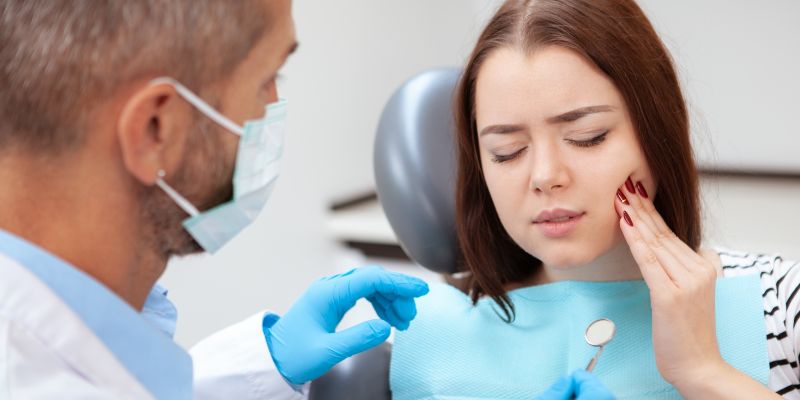Dental Emergency? What to Do

Identifying a Dental Emergency
Not every dental issue requires immediate attention, but certain situations do. Here are some common dental emergencies:
Severe Toothache: Persistent pain, especially when accompanied by swelling, could indicate an infection or abscess that needs urgent care.
Knocked-Out Tooth: A tooth that’s been knocked out requires immediate action to increase the chances of saving it.
Broken or Chipped Tooth: Significant breaks or chips can expose nerves, causing pain and requiring prompt attention.
Lost Filling or Crown: Losing a filling or crown can leave the tooth unsafe for damage and pain.
Abscessed Tooth: An abscess is a serious infection that can spread if not treated quickly.
Broken Braces or Wires: Damaged braces can cause injury and discomfort and might need prompt repair.
Immediate Actions to Take
Knowing how to respond in the first few minutes of a dental emergency can minimize pain and prevent further damage.
1. Toothache
Rinse Your Mouth: Clean the area with warm water.
Floss Gently: If something might be stuck between your teeth, floss gently to remove it.
Pain Relief: It is recommended to consult with your dentist on call to provide medication to get relief from pain for the time when you are not able to reach to your dental clinic immediately.
Cold Compress: Applying a cold compress to the outside of your mouth can help reduce swelling and numb the pain.
2. Knocked-Out Tooth
Handle with Care: Hold the tooth by the crown, avoiding the root.
Rinse Gently: If the tooth is dirty, rinse it with water without scrubbing or removing attached tissue fragments.
3. Broken or Chipped Tooth
Collect the Pieces: Save any broken pieces of the tooth.
Rinse and Compress: Rinse your mouth with warm water and apply a cold compress to reduce swelling.
Pain Relief: Use over-the-counter pain relief to manage discomfort until you can see a dentist.
4. Lost Filling or Crown
Avoid Hard Foods: Stick to soft foods and avoid chewing on the affected side.
Visit Your Dentist: Try to visit your dentist immediately to prevent the occurrence of cavities or infections.
5. Broken Braces or Wires
Cover Sharp Edges: Use orthodontic wax or a cotton ball to cover sharp edges that could cause injury.
Avoid Cutting the Wire: Do not try to cut the wire yourself; see your orthodontist as soon as possible.
Prompt Care is Essential
In a emergency dental care, time is most important. Delaying treatment can lead to more severe complications, such as infections, permanent damage, or the need for more extensive and expensive treatments. Seeking prompt care ensures you receive the necessary treatment quickly, preventing further damage and relieving pain.
Conclusion
Dental emergencies can be stressful, but knowing what to do and where to go can make all the difference. Keep this guide in mind, and don’t hesitate to contact Welldent Dental Care if you have a dental emergency.




